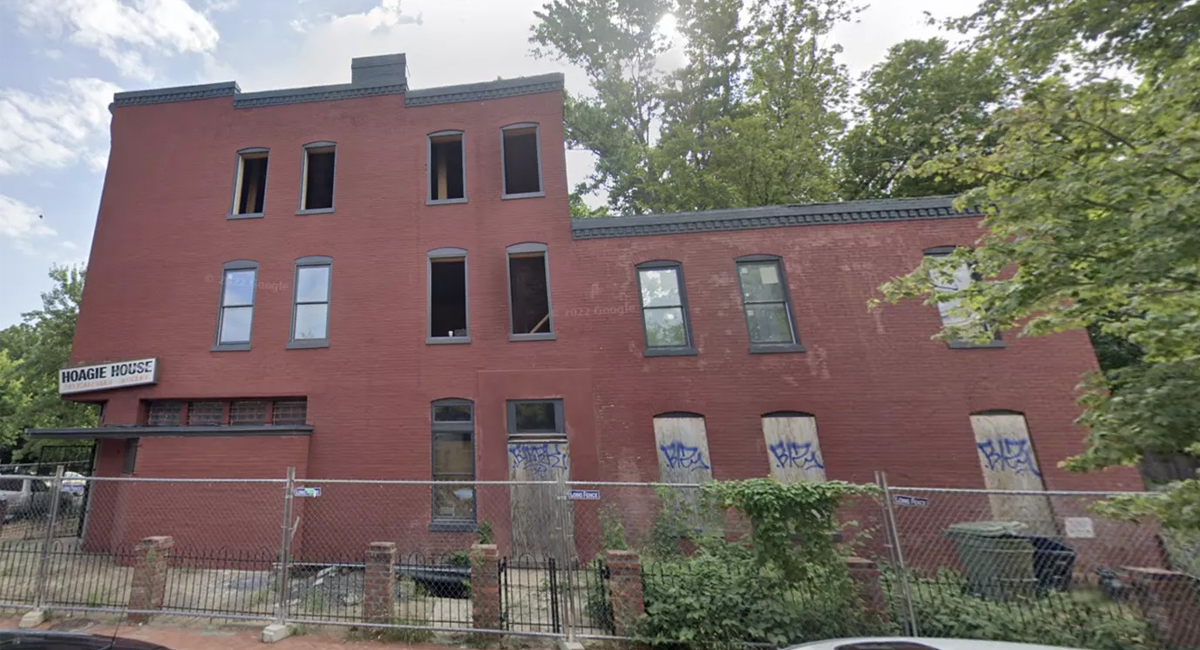The majority of the D.C. Council has thrown its support behind a bill introduced this week that would increase the city's authority to seize vacant and blighted properties while incentivizing owners to reinvest in their properties or sell to someone who will.
Among its provisions, the Vacant to Vibrant Amendment Act of 2024 adjusts property taxes on vacant buildings, adds monetary incentives for owners to revitalize properties and increases the penalties on owners that fail to comply with the law.
The bill also gives D.C. increased authority surrounding disposition of the properties, including giving the mayor the ability to foreclose on and auction off properties as well as acquire and sell them through receivership.
The legislation would affect more than 2,800 vacant properties in the District, more than 10% of which are blighted, according to the city's Department of Buildings.
“Taken together, the proposals in this bill will ensure that the District will be better positioned to prevent vacancy and blight, address violations of the law, and get vacant and blighted properties back into productive use,” the statement of introduction of the bill, which was introduced by D.C. Council Chairman Phil Mendelson and co-sponsored by eight other council members, reads.
One of the big changes the bill makes is adjusting the tax structure for vacant properties in an attempt to lessen the burden on property owners whose buildings became designated vacant because of hardship. It seeks to incentivize redevelopment rather than punish an owner the moment a building becomes vacant.
Occupied properties in D.C. are taxed between $.85 and $1.89 per $100 of assessed value. But vacant and blighted properties are taxed at higher rates. Vacant properties, categorized as Class 3, cost owners $5 in taxes per every $100 of assessed value. Blighted properties — Class 4 — are taxed at $10 per $100 of assessed value.
The legislation creates a sliding scale for vacant properties, starting at the rate at which it would normally be taxed if it were not vacant for the first year and then increasing yearly after that. By the fourth year the property is deemed vacant, the rate would rise to the current $5 per $100 of assessed value.
“I think it's good to see that the council is recognizing that landlords in D.C. are struggling,” Feldman Ruel Managing Principal Ian Ruel, who brokers investment sales in the District, told Bisnow.
“A lot of them are struggling, and a lot of those landlords are not the big institutional owners — they're mom and pops,” he added. “So I think any relief right now is a positive, at least in the short term.”
Also on the incentive side, certain commercial properties that the landlord is redeveloping for commercial purposes would be eligible for a tax abatement, per the bill. Those abatements would be capped at $3M for fiscal years 2027 through 2029 and up to $6M after that.
While it gives owners and developers an incentive to invest, the Vacant to Vibrant bill also gives the city more power to take over properties from those who don't.
As it stands, for properties where the owner owes more than $2,500 in taxes, the city can only auction off the tax lien to a third party that could then foreclose on the property six months later, according to Mendelson Senior Policy Advisor Blaine Stum. The bill proposes that if a vacant or blighted property is left delinquent for a year, the city itself can foreclose and auction it off.
It also creates a new receivership process that the legislation says is modeled after Baltimore’s. It would enable the District to petition the D.C. Superior Court to appoint a receiver to “rehabilitate, demolish, or sell a vacant or vacant blighted building” under certain conditions. The bill says the mayor would also be able to contract with a company, either nonprofit or for-profit, to act as a receiver.
There have been ramped-up efforts over the last few years to rethink regulations and incentives surrounding vacant and blighted properties. A Vacant Property Caucus made up of Advisory Neighborhood Commissioners across eight wards started meeting in February and was working with the Department of Buildings earlier this year to improve data collection and categorize properties that could be prioritized for more immediate activation.
In his introduction to the bill, Mendelson says he created a Vacant and Blighted Property Working Group in the summer of 2023 — bringing together ANC commissioners, Business Improvement District representatives, researchers and District agencies — to evaluate the District’s policies.
The group “examined everything from the causes of vacancy and blight to the tax sale process,” he said, and found what they saw as gaps in the District’s process for preventing properties from becoming vacant and blighted and the ability to get them back into productive use.
